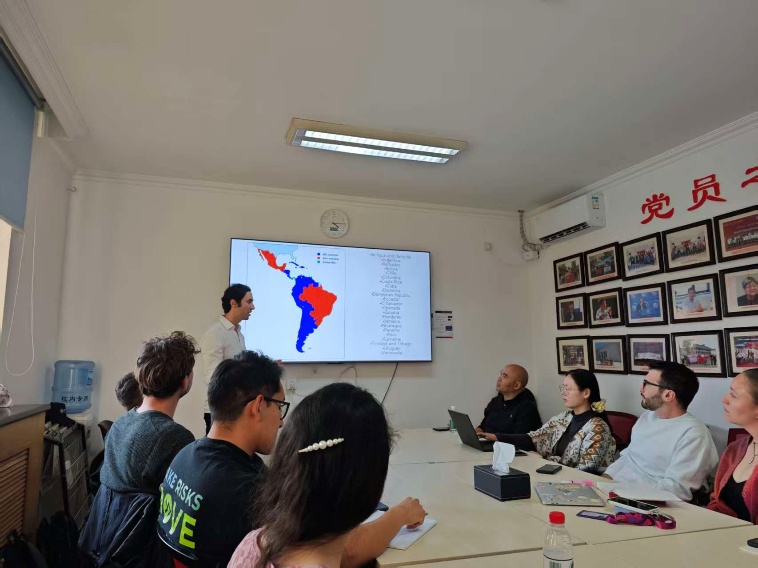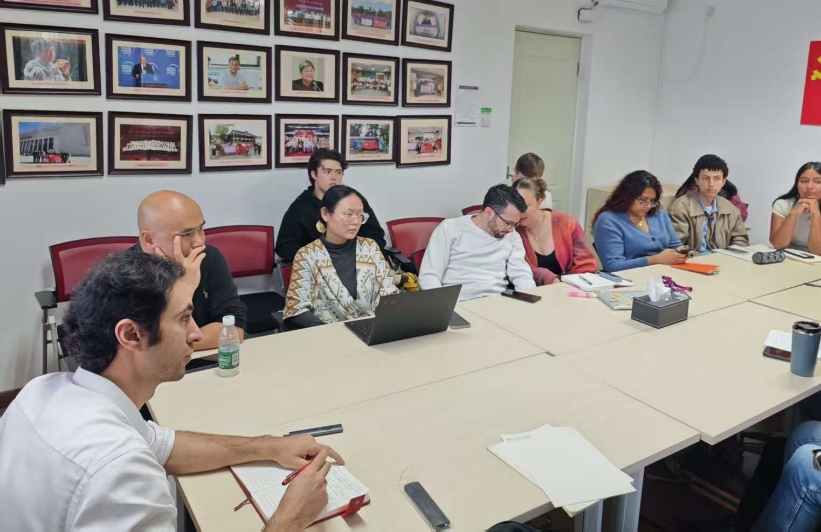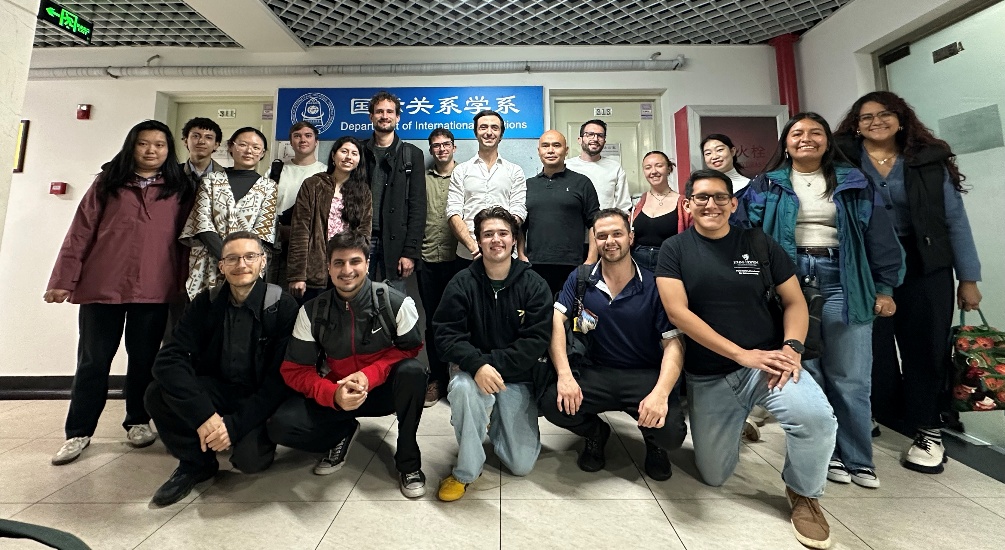Tuesday Oct 14th 16:00-17:30 Mingzhai 337, in English & Chinese
Speaker: David Janna, CEO, Janna International Specialist in China–Latin America–North America Trade, Investment & Cross-Cultural Relations.
He earned his Master’s degree in Political Science from Tsinghua University, specializing in foreign policy and international relations. After graduation, he gained extensive professional experience, serving as a senior advisor providing support to the then Minister of Foreign Affairs of Colombia and to the President of the Republic of Colombia during the 2019 State Visit to China. He also advised the Presidential Agency for International Cooperation of Colombia, where he promoted international relations and cooperation initiatives with the United States, Africa, and Asia, advancing multilateral cooperation and the international development agenda.
He was awarded Decoration by the Bogotá City Council (2024) for contributions to the Capital District in academic matters and for promoting national and international business development.

David Janna firstly started with the overall context of China-Latin America relations, introducing the development process of China-Latin America relations from China's accession to the WTO, the China-CELAC Forum and the BRI. Then, as a scholar and an entrepreneur who actually works with multinational corporations and public institutions, he delves into the significance of BRI for Latin America. He believes that the BRI can serve as a platform for the delivery of meaningful infrastructure and technology programs that foster trade and cooperation between Latin America, China, and the broader Asian region. However, he emphasizes that countries must first recognize their own strengths and capacities in order to contribute effectively and create genuine win-win partnerships.
He then focused on the strengths of Latin America in the process of cooperation, including resources, cultural adaptability, technological innovation and geopolitical importance. Finally, David Janna pointed out the challenges of asymmetry in negotiation power and knowledge gaps, language and cultural barriers, media bias, and misinformation in China-Latin America cooperation, and also looked forward to opportunities in future cooperation. He believes that opportunities and challenges coexist, and more and more people who can speak Mandarin and understand China and Latin American countries need to continue to explore and act to create opportunities for cooperation and promote mutual benefit and win-win cooperation between China and Latin America.

Subsequently, he exchanged views with students from various Latin American countries, answering specific questions and challenges about cooperation between Brazil, Chile and other countries with China, and giving suggestions for Chinese companies to invest and build in Latin America.
